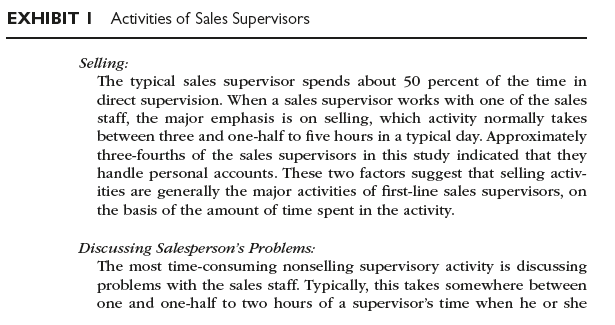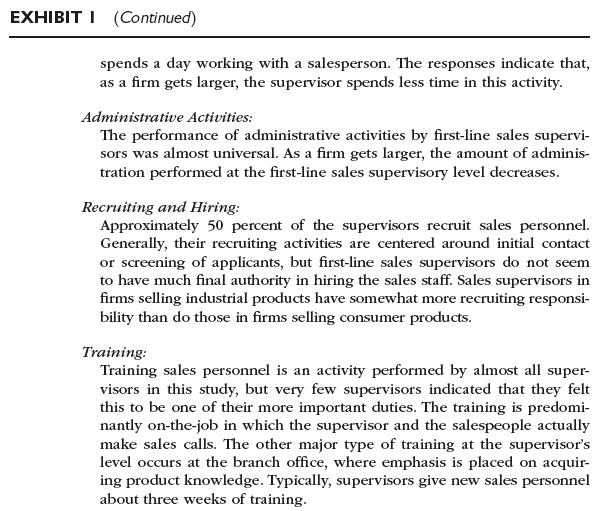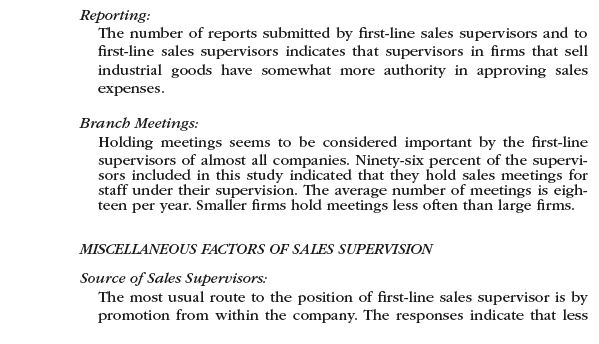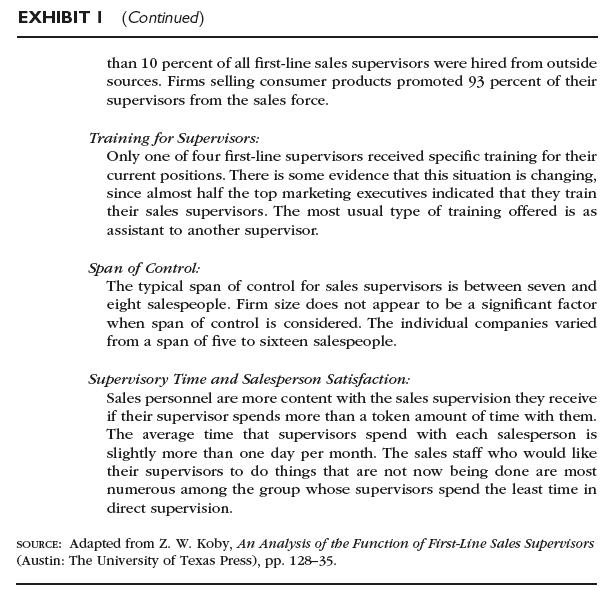Gary Graydon, general sales manager of the Dewey Dressing Company, was reevaluating the role of district sales managers. The Dewey Dressing Company produced a brpad line of salad dressings and related products, sold in forty states under the Dewey name. The company was founded in Los Angeles when Lawrence Dewey, a successful restaurant operator, was persuaded to market commercially the salad dressings that were so popular in his restaurant. The Dewey products were well accepted, and within twenty-five years, the company had achieved almost complete national distribution. Distribution was through food wholesalers, but an important job of the sales personnel who serviced these wholesalers was to call regularly on large retail outlets for promotional purposes.
The Dewey market was divided into seven regions, each under the direction of a regional sales manager, each reporting directly to Graydon. The regions were subdivided into districts, under the control of district sales managers. There were forty sales districts, and the entire sales force comprised five hundred individuals.
Each district sales manager had direct supervision over from ten to eighteen salespeople. Each was expected to spend at least one half day per month with each salesperson, during which time he or she observed the salesperson’s performance and made demonstration sales. The district sales manager was responsible for recruiting the sales personnel in the district, since management believed that salespeople would be happiest working near home. The most important source for new recruits was classified advertisements in newspapers. After screening by the district sales manager, selection of new sales personnel was by the regional manager.
New sales personnel were assigned to working territories immediately. Normally, the district sales manager worked with a new salesperson during the first week on the job, but sometimes conflicting demands on the time of the district manager made it impossible to provide threshold training immediately. In such instances, the salespeople had to learn by doing.
New salespeople were classified as trainees for the first six months, during which the district sales manager was expected to have several short sessions with each new person, in addition to the one-week threshold training. Continuing training was provided for all sales personnel in weekly sales meetings held by each district sales manager on Monday mornings.
District sales managers had normal administrative report work, checking and forwarding salespeople’s reports, and submitting their own weekly reports. In addition, each had five to ten personal accounts to service. The Dewey Company followed a policy of promotion from within in selecting its district sales managers. Thirty-nine district managers were former salespeople, and the remaining manager had worked in the home office. No formal training was provided for district sales managers.
Recently, Gary Graydon was asked to cooperate in a national study of sales supervisors by Z. William Koby of Houston, Texas. One purpose of the study was to assess the role of first-line supervisors in American sales organizations. The Dewey Dressing Company was one of twenty-one large national organizations that participated in the study. A year later, Graydon received a summary of the results from Koby. These results were based upon detailed responses from top marketing executives, sales supervisors, and sales personnel. There were approximately 300 responses from supervisors and 1,500 from salespeople. Summarized extracts from this report are shown in Exhibit 1. Fifteen of the firms were industrial-goods manufacturers; the rest were consumer-goods manufacturers.
- Evaluate the role of first-line sales supervisors in the Dewey organization. Do you think that Graydon should have made any changes in light of the findings?




Source: Richard R. Still, Edward W. Cundliff, Normal A. P Govoni, Sandeep Puri (2017), Sales and Distribution Management: Decisions, Strategies, and Cases, Pearson; Sixth edition.

I got what you mean , thankyou for putting up.Woh I am delighted to find this website through google.